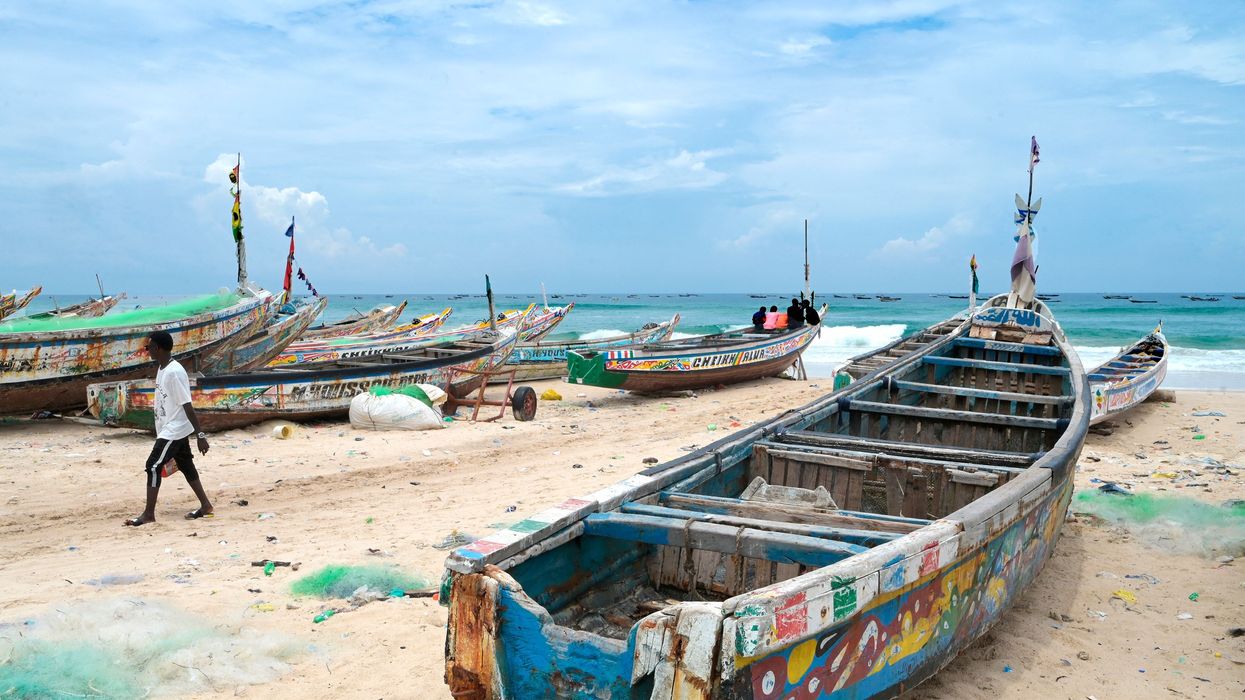"If we apply the same passion and logic that we use in the protection of our own families to our broader communities and ecosystems, then we will win," she continued. "In these difficult times for environmental activists, these seven individuals serve as powerful reminders of what is possible through determination, resilience, and hope."
Since 1989, the foundation has awarded the annual prize to individuals from the world's six inhabited continental regions "for sustained and significant efforts to protect and enhance the natural environment, often at great personal risk."
Africa: Semia Gharbi of Tunisia
Gharbi, a 57-year-old scientist and environmental educator, led a campaign against a corrupt waste trafficking scheme between Italy and Tunisia that led to the arrest of over 40 people from both countries and stronger European Union export rules.
Asia: Batmunkh Luvsandash of Mongolia
After being born to a nomadic herder family and working as an electrical engineer for construction and mining projects, 81-year-old Luvsandash used his expertise to fight to protect 66,000 acres of Dornogovi province from extractive activities.
Europe: Besjana "Besi" Guri and Olsi Nika of Albania
The efforts of Guri, a 37-year-old who trained as a social worker, and Nika, a 39-year-old biologist and aquatic ecologist, to safeguard the Vjosa River from a hydropower dam development led to Albania and Europe's first new national park protecting a wild river and its tributaries.
Islands: Carlos Mallo Molina of the Canary Islands
Mallo Molina, a 36-year-old born in mainland Spain, left his job as a civil engineer specializing in port construction to launch the conservation group Innoceana, which fought to protect the Canary Islands' marine ecosystem from the proposed Fonsalía Port.
North America: Laurene Allen of the United States
Allen, a 62-year-old clinical social worker, campaigned for the closure of the Saint-Gobain Performance Plastics plant in Merrimack, New Hampshire, and continues to fight for cleanup efforts and stricter regulations regarding per- and polyfluoroalkyl substances (PFAS), commonly called "forever chemicals" because they persist in the environment and people's bodies for long periods.
South and Central America: Mari Luz Canaquiri Murayari of Peru
Canaquiri Murayari is the 56-year-old president of the Kukama women's organization Asociación de Mujeres Huaynakana Kamatahuara Kanawon, which won a landmark Rights of Nature court ruling that granted legal personhood to the Marañón River.
This year's prize winners are set to be celebrated on Monday at an in-person and livestreamed ceremony in San Francisco, California, at 5:30 pm Pacific Daylight Time.



